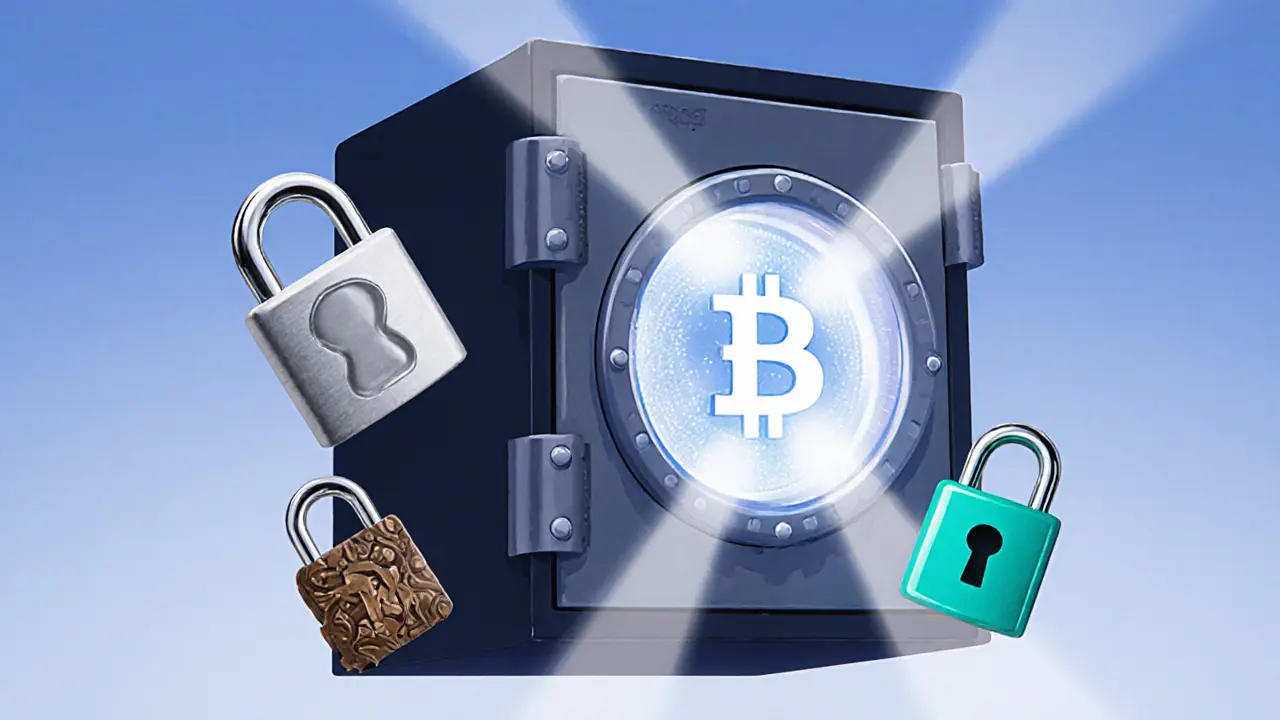Learn practical MultiSig wallet security best practices for 2025, covering M‑of‑N setups, hardware wallets, time‑locks, MFA, monitoring, and recovery planning.
Hardware Wallet: Your Best Defense Against Crypto Theft
When working with hardware wallet, a physical device that stores your cryptocurrency private keys offline. Also known as cold‑storage device, it protects assets from online hacks and phishing attacks. Cold storage, the practice of keeping crypto assets disconnected from the internet is a core feature of any hardware wallet, and it private key, the secret code that lets you sign transactions and move funds never leaves the device. This trio—hardware wallet, cold storage, and private key—forms the security triangle that hardware wallet users rely on.
Why Seed Phrases and Digital Signatures Matter
Every hardware wallet generates a seed phrase, a list of 12‑24 words used to recover your private keys that acts like a backup key. Lose the device? No problem—enter the seed phrase on another compatible wallet and you regain full control. This recovery method ties directly into digital signatures, cryptographic proofs that confirm a transaction came from the rightful owner, which depend on the private key stored inside the hardware wallet. Because the signing happens offline, the risk of exposing your private key to a malicious website drops dramatically. In practice, using a hardware wallet reduces the attack surface for exploits that often target software wallets or exchanges, especially during high‑profile airdrops or token sales where scammers try to grab exposed keys.
Beyond backup, hardware wallets let you interact safely with crypto platforms—whether you’re checking a new airdrop on Polytrade, reviewing exchange security risks, or swapping tokens on a DEX. By keeping the private key locked inside the device, you avoid the pitfalls highlighted in many of our posts about centralized exchange token risks and digital signature vulnerabilities. When you pair a strong seed phrase with regular firmware updates, you create a resilient defense that most users need to protect their holdings. Below, you’ll find a curated list of articles that walk through airdrop claim guides, exchange security reviews, and deep dives into crypto threats—all tied together by the common thread of safeguarding your assets with a hardware wallet.
